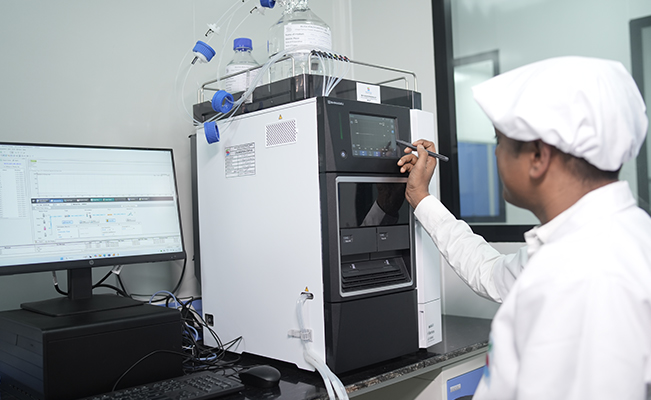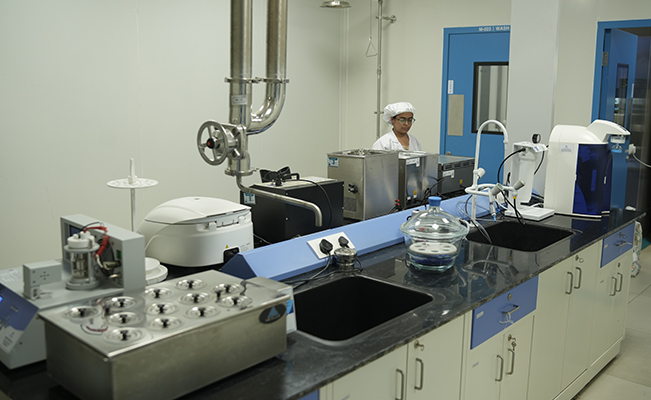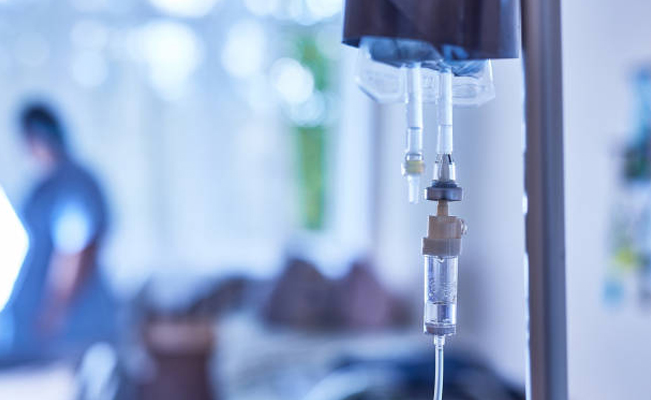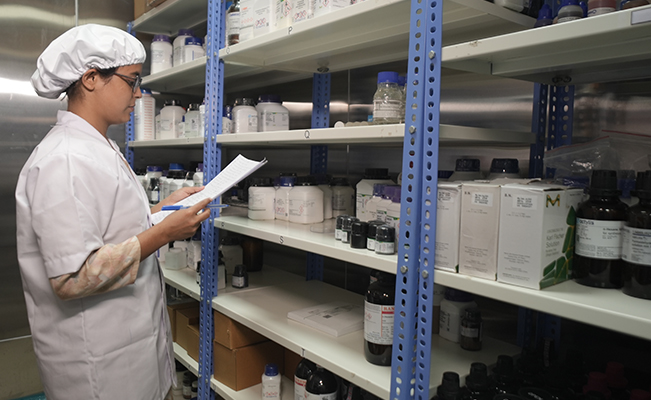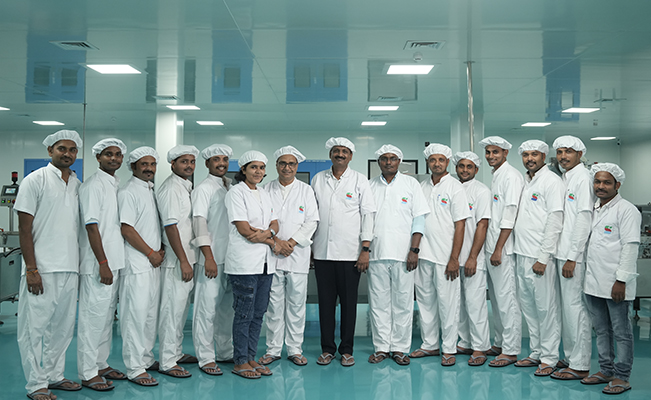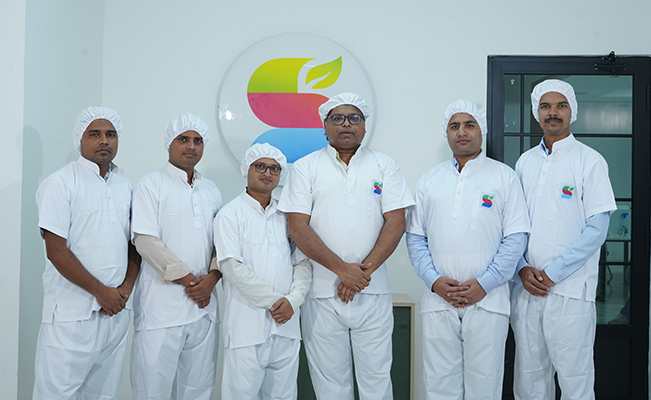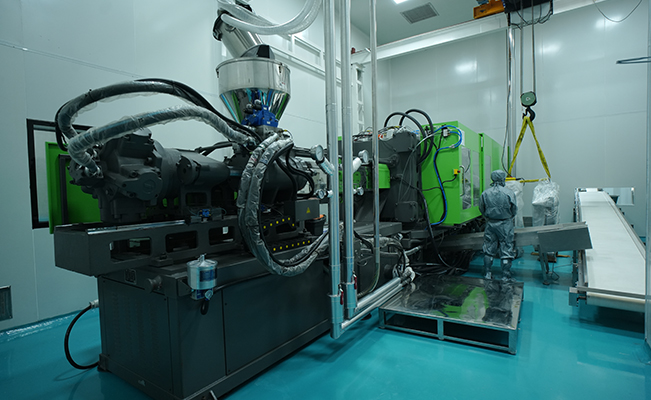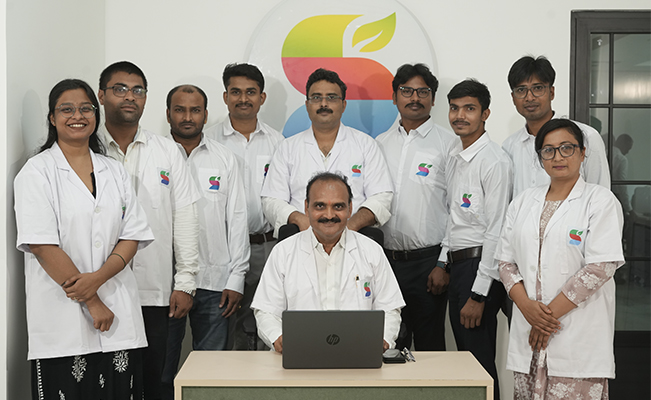Precision. Purity. Performance – Engineered at Every Stage.
At Silica Healthcare, our IV fluid production is not just about manufacturing—it’s a science of precision, sterility and innovation. We have built a state-of-the-art infrastructure that integrates advanced machinery, automated systems and internationally benchmarked quality controls to ensure that every IV fluid bottle delivers safe, consistent and high-quality therapy to patients across India.
We follow a zero-touch, fully sterile production protocol driven by modern technologies like BFS/FFS Sterile, Sterile Plus and SCADA automation, making our plant one of the most advanced IV fluid production units in the country.
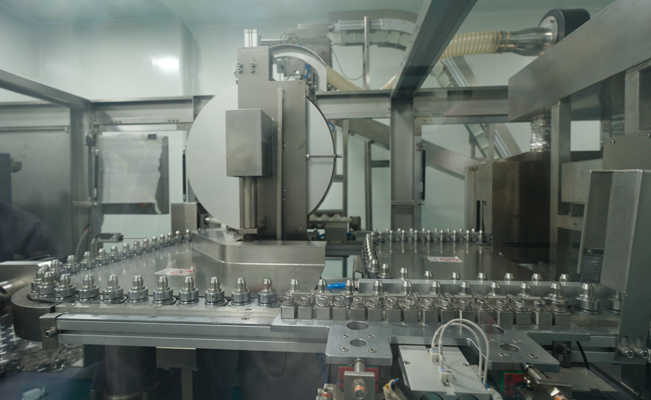
Step-by-Step: IV Fluid Manufacturing Process at Silica Healthcare
- Only medical-grade polypropylene (PP) granules, pharmaceutical-grade APIs and excipients are used.
- All incoming raw materials undergo QC testing for purity, compliance and certification as per Indian Pharmacopeia (IP) standards.
- Since water constitutes over 99% of IV fluids, we use Italian-engineered multi-stage purification systems, which include:
- Reverse Osmosis (RO)
- Electrodeionization (EDI)
- Ultrafiltration (UF)
- UV Sterilization
- 316L Stainless Steel WFI Circulation Loop
The purified water meets WFI-grade requirements and is continuously monitored for pH, TOC (Total Organic Carbon), conductivity and microbial load.
- Precise weighing of ingredients and preparation in closed mixing vessels with automated dosing systems.
- Real-time temperature and pH control to maintain formulation stability.
- Filtering through 0.2-micron sterile filters before transfer to the filling unit.
All batches are released only after QC, QA and regulatory approval, ensuring unmatched safety and quality.
Packaging & Storage
- We currently offer:
- BFS/FFS Sterile flexible packs (single-use, tamper-proof, recyclable)
- Rigid PP bottles (with Eurohead or Nipplehead closure)
- Each pack is:
- Leak-tested
- Barcode-labeled for traceability
- Packed in export-quality shipper boxes for storage & transit stability
To meet evolving hospital needs and global compliance trends, we are expanding into Non-PVC IV Bag Technology, which offers several advantages:
Coming Soon: Non-PVC IV Bags
- DEHP-free, safe for neonates, ICU and oncology
- Compatible with a wider range of drug infusions
- More flexible, lightweight and eco-friendly
- Meets EU & US Pharmacopeia guidelines for high-risk patient care
These bags are ideal for:
- Pediatric & neonatal care
- TPN (Total Parenteral Nutrition)
- Oncology & chemotherapy infusions
- Export markets & WHO-GMP-based tenders
Why Our Process Matters

Doctors
get sterile, safe and consistently performing IV fluids

Hospitals
rely on long shelf-life and easy-to-use packaging

Distributors
benefit from minimal breakage, high acceptance and timely dispatch

Government buyers
get assurance of regulatory-compliant, large-scale manufacturing capability
- An advanced European system that forms the bottle, fills the sterile solution and seals it—in a single continuous aseptic environment.
- Uses multi-layer PP film to form flexible containers in volumes ranging from 100 ml to 1000 ml.
- No human contact ensures zero contamination risk.
Used For: Large-volume parenterals (LVP), high-demand infusions like NS, RL, DNS and dextrose solutions.
- PP granules are moulded into preforms, then stretch-blown into rigid, clear, high-strength bottles.
- These bottles are highly resistant to breakage and suitable for retail and institutional packaging.
Used For: Glycerin-Mannitol, Mannitol, Sodium Bicarbonate and all critical care infusions.
- SCADA (Supervisory Control and Data Acquisition) systems control and monitor the entire production process.
- Ensures electronic batch records, live parameter tracking (temperature, pressure, volume) and alerts in case of deviations.
Result: 100% traceability, zero manual error, 21 CFR Part 11 compliance for regulatory audits.
Quality Control & Assurance at Every Stage
- In-Process Checks: During manufacturing—monitoring clarity, pH, osmolality and fill volume.
- Terminal Sterilization: Each batch is autoclaved at 121°C under validated conditions for 30 minutes to ensure sterility.
- Visual Inspection: Every bottle is checked for particles, leakage, deformation and label accuracy.
- Microbiology Testing: Each batch is tested for pyrogens, endotoxins and microbial load
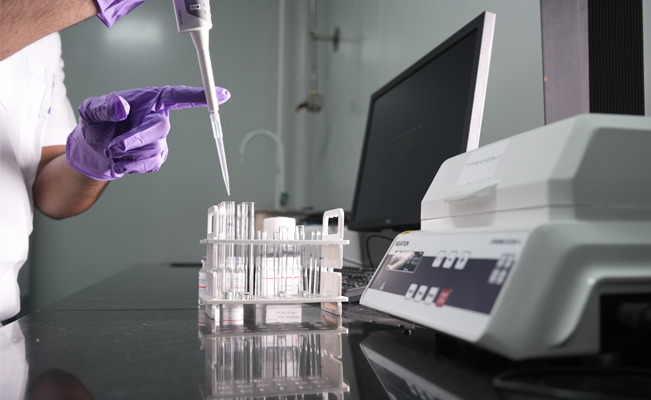
At Silica Healthcare, we don’t just produce IV fluids—we manufacture with purpose, powered by technology and driven by a commitment to quality, safety and care.



